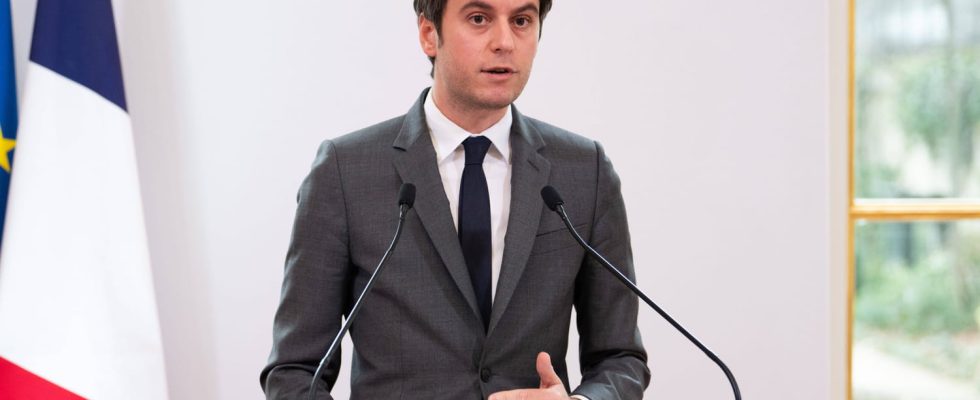After a third round of announcements from Gabriel Attal this Thursday, February 1, certain farmers’ unions finally say they are satisfied with the measures taken even if they are waiting for concrete results. Others still consider the measures insufficient.
A third and final round of announcements aimed at farmers. The Prime Minister spoke once again this Thursday, February 1, a third speech in less than a week, to provide answers to the agricultural crisis and try to calm anger. Previous announcements had not convinced the agricultural world and Gabriel Attal recognized the inadequacy of these first comments: “Have we responded to the unease? Obviously no. Have we made mistakes? Obviously yes “.
The head of government therefore returned, accompanied by Bruno Le Maire, Minister of the Economy, Marc Fesneau appointed to Agriculture and Christophe Béchu in charge of the Ecological Transition, to complete the series of announcements with more measures complete. And this time, the government’s speech found a little echo with the FNSEA and Young Farmers. The two majority unions announced the lifting of the blockades without putting an end to the movement. Here’s what to remember from the announcements.
Inclusion of food sovereignty in law
“We want to be sovereign, sovereign to cultivate. Sovereign to harvest. Sovereign to feed ourselves” assured the Prime Minister. He also said he wanted to include farmers in the process of enshrining European sovereignty in law. He also announced the establishment of an “annual report on food sovereignty” to ensure compliance with it, as well as the establishment of sector by sector plans.
The Prime Minister also committed to quickly putting the proposed law on neighborhood nuisances on the parliamentary agenda in order to protect farmers in their conflicts with neo-rurals.
Suspension of the Ecophyto plan and import bans linked to pesticides
Gabriel Attal announced the “shutdown” of the Ecophyto plan, the aim of which is to reduce the use of pesticides. “We will stop it while we put in place a new indicator,” he said, repeating, however, the objective “of preserving our environment and the health of our fellow citizens.”
Still on the topic of pesticides, the Prime Minister also decided “to immediately take a safeguard clause which prohibits imports of products treated with thiacloprid”, a pesticide banned in Europe since 2019. “This example is the sign of the new policy that will be ours, mirror measures everywhere, safeguard clauses, relentless fight against unfair competition”, he affirmed, implying reciprocity on the standards expected on imported products to fight against “unfair competition”: “There must be no products banned in France, but authorized elsewhere in Europe”.
Strengthening the EGAlim law and controls
“We are going to strengthen the Egalim law” to protect farmers’ remuneration, confirmed the Prime Minister. This law designed in 2018 and revised in 2021 aims to guarantee a level of income for farmers and to protect them during negotiations with economic players in mass distribution and agro-industry.
Not only to strengthen the law, the government wants to strengthen controls in order to verify the application of the law. The Minister of the Economy thus promised that “all major supermarket chains will be controlled without exception” and that European purchasing centers will also be affected by the controls. In the event of a breach of the law, penalties may reach 2% of turnover.
Opposition to an agreement with Mercosur
Still with a view to fighting against a form of unfair competition created by differences in standards and therefore prices between French products and those imported, Gabriel Attal reaffirmed France’s opposition to the signing of a free trade agreement. -exchange between the European Union and the South American economic alliance Mercosur. A position that Emmanuel Macron confirmed before the President of the European Commission, Ursula Von der Leyen, this Thursday.
Import of Ukrainian products
Concerning Ukrainian products, Gabriel Attal indicated that he wanted to continue but limit their importation. “We are moving forward with the creation of safeguard clauses, particularly on poultry. We will have to address the issue of cereals in the framework of the negotiations which are opening.” The Prime Minister and the Minister of Agriculture insisted on the “duty of solidarity with Ukraine” but noted that “the unconditional and unlimited opening has led to the destabilization of certain sectors”.
Farm transfers
The government has placed emphasis on the transfer of agricultural holdings which “are a guarantee of generational renewal”, according to Bruno Le Maire. To facilitate these transmissions, the Minister of the Economy announced “the raising of all exemption thresholds on transmissions”: “The current thresholds allowing total exemption are €500,000, and (…) up to 1 million euros for a partial exemption. These thresholds are raised to €700,000 for the total exemption and €1,200,000 for a partial exemption in the event of a takeover of a farm by a young farmer.”
It is also the threshold for exemption from “inheritance and gift taxes in the event of transmission of rural property” which is reassessed and increases from 500,000 euros to 600,000 euros “in the event of transmission to a young farmer”.
150 million euros dedicated to breeders
The Prime Minister announced a specific support plan for the livestock sector: 150 million euros “in fiscal and social support” will be mobilized to support breeders, who are particularly in difficulty. The envelope will be released “from this year and on a permanent basis”, but the modalities must still be detailed.
